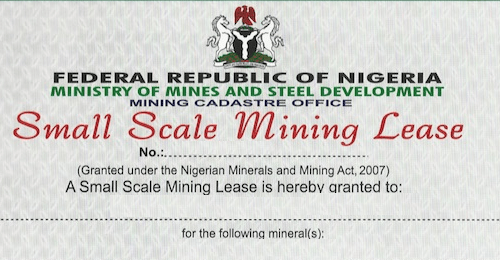Nigerian Government has recalled 924 inactive mining licences immediately and invites investors to freely apply for the affected licences which will be offered on a “first come, first serve” basis.
The licences includes 528 exploration licences, 20 mining leases, 101 quarry licences, and 273 small-scale mining licences, Minister of Solid Minerals, Dele Alake said in a statement.
More than 1,600 mining titles were revoked last year for non-payment of statutory fees as part of sweeping reforms in the sector.
Alake said the action was taken to curb “licence racketeering” where companies or individuals secure titles that hold minerals of commercial ùvalue and then offer the licences to the highest bidder.
In a press conference, the Minister declared that in line with constitutional provisions, adequate notice was given to all concerned parties through the official gazette of the Federal Republic of Nigeria.
The notice gave all concerned parties 30 days to regularise their status, including clarifying what caused the license to be dormant. Thus, although 963 licensees were published and notified of the threat of revocation, no fewer than 39 either moved to the site immediately or convinced the authorities of the challenges hindering their operation, the Minister asserted.
By creating a secondary black market to pawn mineral licences, the unsuspecting and unwary investor is misled into believing that he can only obtain licence by patronising the black market. This discourages investment, Alake said.
It is our belief that this decision will sanitise the licensing system by penalising those who have commercialized the opportunities offered by the sector into a bazaar, he added.
The Minister stated that the action followed due process and fair consideration whilst it underscores the commitment of the Federal Government to implement the standard policy of “Use it or Lose it” as enshrined in the mining guidelines
Mr Alake has confirmed invitations for investors across the globe to apply for any of the affected Cadastral Units based on first come, first serve to invest in the mining industry that has long been underdeveloped, offering incentives such as tax waivers and full repatriation of profits to investors.
In the past, Nigeria has struggled to extract value from its vast mineral resources due to neglect and lack of investments.
Nigeria is rich in lithium, gold and limestone and will grant mining licences to only companies that process their minerals locally after toughening licensing rules for foreign companies last year.

